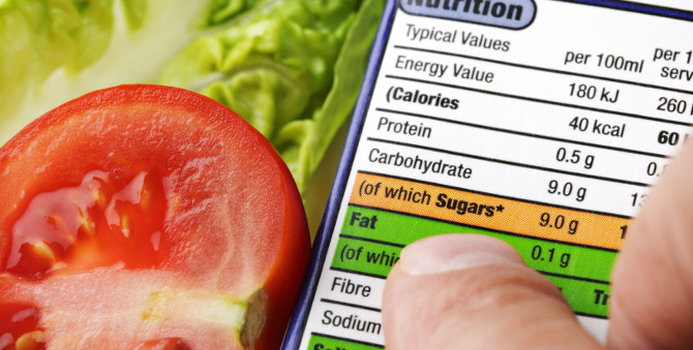Calorie counting means you'll need to precisely keep track of all the calories you've consumed each day. Calorie counting will start to become a breeze if you avoid some commonly made mistakes. Below are examples of errors people make when counting calories; familiarizing yourself with these mistakes will help you avoid them to maximize your success.
1. Not Recording What You Eat
Recording what you eat by keeping a food diary is essential when counting calories. It's hard to remember everything you've eaten in a day so write down what you eat when you eat it. Keeping a tally of your calories throughout the day will also help prevent you from exceeding your daily calorie goals. Be as specific as possible when recording food; write down the type of food, quantity of food, and brand name if you know it. Another reason to keep a food diary when you're trying to lose weight is because people who record what they eat tend to eat less!
2. Misreading Food Labels
To count calories efficiently you'll need to become familiar with how to read a food label or use calorie counting software or websites (try using the nutrition tools provided at FitDay.com). A food label will tell you exactly how many calories are in a serving size of the food you're eating. The calorie content (and serving size) of the food is listed on top of the food label. Remember if you eat more than one serving, adjust your calories accordingly.
3. Recording Incorrect Serving Sizes
You'll need to know what a serving size is (per the food label) to accurately record your calories. Keep in mind that a portion size on a food label may be different than portions listed on the food guide pyramid. It's essential that you use exact measurements when recording portion sizes; therefore don't estimate. It's helpful to measure out each food before you eat it, especially when you first begin calorie counting. Remember to adjust your calories if you eat more (or less) than one serving.
4. Not Being Precise
Unfortunately, calorie counting does take hard work and dedication; you'll need to be as precise as possible to get the most accurate results. Don't estimate when it comes to portion sizes or number of calories eaten. Remember to record every food, beverage and condiment you've eaten throughout the day.
5. Restricting Your Diet to Familiar Foods
Sometimes calorie counting can lead to restricting your diet to only foods with a familiar calorie content. When you're trying to lose weight healthfully it's important to include a wide variety of foods in your diet. If you eat at a restaurant or eat a food that's missing a label, write down the food and portion size anyway; later look up the calorie content on a calorie counting or restaurant website. Although it may initially take more time to calculate calories of unfamiliar foods, you'll likely benefit in the long run and won't get burned out from always eating the same foods.



